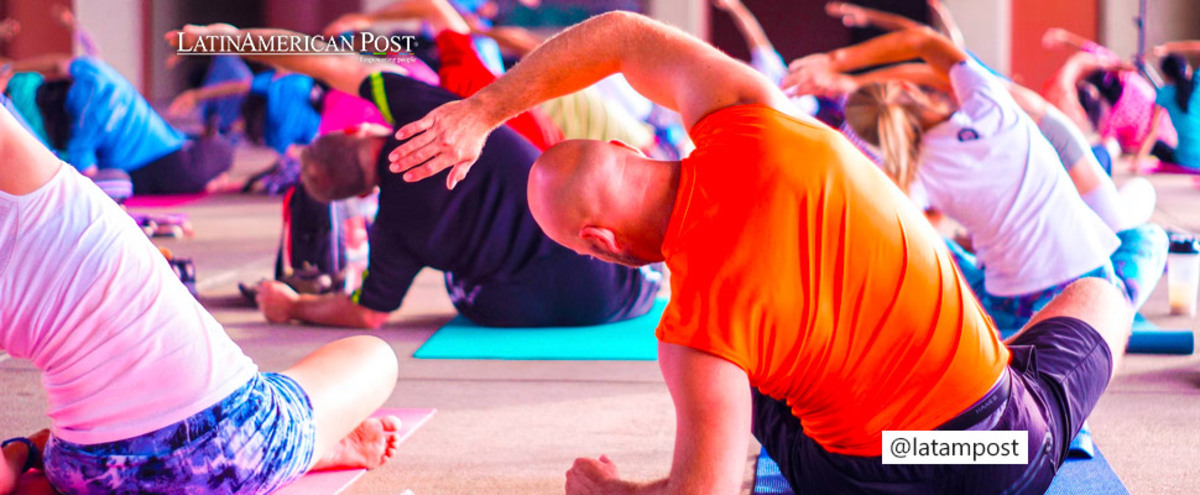Does Exercise Affect Self-Esteem
You must be wondering whether you are better off sitting in front of your TV than taking a morning run or scheduling gym time. The answer to that would be quite obvious: living a sedentary life will do you more good than sitting in. Apart from improving your physical health, exercise will raise your general well-being and confidence.

Santiago Luis Siksnys
Escucha este artículo
As published by the National Institutes of Health (NIH), improved levels of physical self-efficacy are directly related to increased self-esteem. Here is how a date with the gym will affect your self-confidence.
1. Exercise Makes You Feel Better
If you feel better physically, then you will feel equally good mentally. Exercise has several ways it makes an individual feel better and happy. It could be a result of the feeling of accomplishment, meeting new people, or the release of feel-good hormones.
Exercise makes you feel better physically and mentally. This brews a positive attitude and emotional stamina that leads to high self-esteem. In addition to exercise (when you need a break), you can get more feel-good hormones flowing through Bitcoin casino jackpot crypto gaming.
2. Exercise Makes You Stronger
Exercise makes you stronger. It could be physically by increasing your power output or muscle size, physiologically, emotionally through increasing your self-confidence and mentally. All the benefits are linked to increased self-esteem. By seeing what your body is capable of doing, self-confidence will automatically kick in.
The feeling of accomplishment that comes with being able to stay focused on your workout goals: seeing the results of your resilience makes you start feeling that you can do anything. That translates to increased confidence.
3. Exercise Makes You Look Better
How you look has a direct bearing on your self-esteem. As your fitness and appearance improve, so will your self-confidence. Through exercise, you will enhance your appearance by making your body stronger, toned, and more firm. Exercise has also been found to be an indispensable weight management tool.
Not being happy with how you look gives birth to negative self-talk, which weighs down your self-confidence. Being comfortable with how you look, on the other hand, will tune up your self-esteem.
4. Exercise Makes You Smarter
Have you ever wondered why, after a morning at the gym or doing runs, your concentration is at its best the entire day at work or school? Exercise feeds your brain. Workout boosts your blood circulation, ensuring your brain has an adequate supply of oxygen and nutrients. This results in enhanced cognitive brain functioning.
Improved performance resulting in an enhanced mental function will directly impact your self-confidence.
5. Reducing Stress
Elevated feelings of self-awareness and anxiety have a negative impact on self-esteem. Exercise has exceptional stress-bursting properties. You may have probably experienced a “runner’s high.” This comes about due to the release of feel-good hormones such as dopamine and endorphins. When these hormones are released, they help regulate stress hormones such as adrenaline and cortisol.
Alleviating stress helps you focus and manage the day-to-day challenges soberly. This helps you accomplish more, which will boost your self-confidence.
6. Increased Sense of Accomplishment
Exercise operates on goal setting. You start doing ten squats a day; then it graduates to fifty in a day. Before you sign up for a gym, there is usually something that you want to achieve. It could be losing weight, toning, or increasing your muscle size. The moment you meet the small progressive goals, a great sense of accomplishment is promoted, and you get the confidence to set and achieve even bigger goals.
Tips to Help Maintain a Regular Fitness Routine
Even when you have every intention to exercise, it is easy to find yourself making excuses to miss that morning run or gym session. To get the most from working out, you have to keep your fitness journey on track using the following actionable tips
1. Take it Easy
Taking baby steps can keep you motivated until you can manage more challenging high-intensity training. Most people who do too much too soon end up discouraged, sore, and injured and eventually quit.
2. Manage your Time
Regardless of how tight your schedule is, you cannot miss at least 30 minutes of exercise. All you have to do is find room. If you cannot get all the 30 minutes at once, consider breaking them down into three sessions of 10 minutes each.
If you can’t get to the gym because of a crazy workday, you can do cardio at home or even lift weights. No matter how cramped your clock is, just make sure you do something every day.
3. Pick a Physical Exercise that Interests You
Working out does not have to be boring. There is a range of physical activities to pick from. You can choose aerobics, swimming, jumping rope, and other types of exercise you enjoy doing.
Having a trainer, gym partner, or joining a group activity can also sustain your enthusiasm making maintaining a routine easier.
Take Away
By increasing the feeling of accomplishment and feeling good about how you look, exercise improves your self-esteem. It enhances your physical, mental, and emotional health. If you make it routine, exercise will boost your self-confidence and make you more comfortable with yourself.
Research has also identified both direct and indirect associations between exercise and self-esteem.




